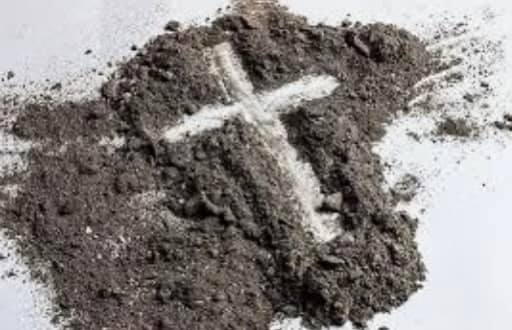444 total views
Ash Wednesday is the beginning of the seaon of Lent, 40 days of preparation for Easter. The day is marked by fasting, abstinence, and the blessing with ashes. These remind us of the need for reconciliation with God. They indicate our mortality.
It was an early practice in Rome for penitents and grievous sinners to be sprinkled with ashes, dressed in sackcloth, and obliged to remain apart until they were reconciled with the Christian community on Holy Thursday. They were thus enabled to receive the Eucharist. In the Old Testament, ‘ëpher (אֵ֙פֶר֙) dust or ash put on the head is a sign of humiliation and expression of grief (cf Tamar’s grief after she was violated by her half-brother, 2 Sam. 13:19). Ashes and sackcloth expressed contrition and sorrow for sins (Dan 9:3; Job 42:6; Jer 6:26), and with fasting (Jon 3:6,8). In the New Testament, Jesus mentions sackcloth and ashes, spodos (σποδός), as signs of repentance (Mt 11:21; Lk 10:13).
Gradually the practice of wearing sackcloth as penitential obligation fell into disuse. Tracing the sign of the cross with ashes on the heads of the entire congregation began to be used regularly to symbolize the beginning of Lent. As the sign of the cross is made on the forehead, a dictum is said, either “Repent, and believe in the Gospel” (see Mk 1:15) or “Remember that you are dust, and to dust you shall return” (see Gen. 3:19). The first formula indicates the need of repentance and reconciliation with God. The second reminds us of our sinfulness and of our mortality.
As we enter the season of Lent, let us bear in mind that it is characterized by penance for our past sins, works of mercy especially toward the poor, and personal preparation for the renewal of our baptismal vows on Easter. Our tears of penance renew in our hearts and souls the water of baptism.
In a special way today, Pope Francis is calling the whole world for a day of prayer and fasting for peace as Russia ivaded Ukraine. And locally the CBCP is inviting us this season of Lent to engage in dialogue and discernment that we may be able to choose in the coming national election the most qualified and capable, morally upright and has the genuine love for, and interest in, the good of the country.

















